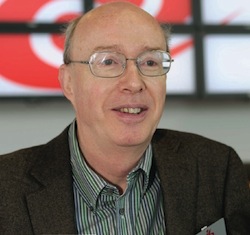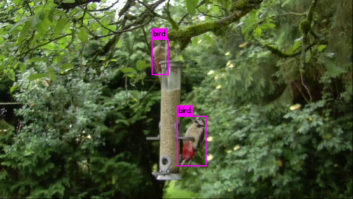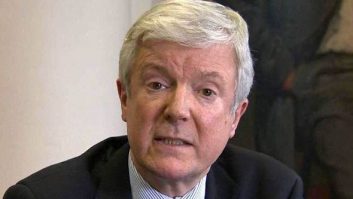
The modern media landscape is changing shape rapidly. Chairing the IBC conference committee this year is Michael Lumley. Here he outlines how this year’s programme has been tailored to focus on the key issues of the day.
In recent years the IBC conference has grown far beyond its original purely technical brief to address all the issues surrounding electronic media today. This year I believe we have taken it yet one step further forward to ensure that IBC really does set the agenda for our industry.
The conference is divided into four clearly defined streams: technology advancements, content creation and innovation, the business of broadcasting, and added value. In broad terms, these define the issues that challenge us today. Innovative creativity is enabled and empowered by the latest technologies, and creative content wins audiences and thus leads to commercial success.
I should emphasise, though, that the presence of these streams should not be seen as any sort of restriction or limiting factor. Delegates are, of course, free to dip in and out of any of the streams to build up a comprehensive view of their particular region of interest.
Indeed, we have already identified a number of journeys through the conference, which cross-stream but focus on some of the hot topics of today. These journeys typically run over several days, and can be taken by one delegate or by a team of colleagues. The intention is that by the end of the journey there will be a rounded understanding of the whole topic, as well as the chance to make a contribution to the debate.
So if you are interested in production, for example, you might start with social media and online content on Thursday 9 September and follow it with asset protection and 24/7 production on the Friday. Saturday 11 September sees sessions on cutting edge technology; there are masterclasses on new cameras and post on Sunday 12 September; and Monday 13 September has useful workshops on mobile television as well as the stereoscopic 3D day.
Stereo 3D has its own journey, and it naturally intersects with the sports thread. I am really pleased that we have two of the most important people in the world of sports broadcasting with us. Because of the way they have driven the use of new technologies, what they have to say will be of great interest to everyone, not just those involved in sport.
Giving the keynote on Saturday 11 September wi l l be Manolo Romero, head of Olympic Broadcasting Services and this year’s winner of the IBC International Honour for Excellence. In his remarkable career he has been involved in the coverage of every single Olympic Games since Mexico in 1968, and today works on behalf of the International Olympic Committee, ensuring that the needs of every rights holding broadcaster, large and small, gets the coverage they need.
Following him will be a session led by Peter Angell, Director, Production and Programming Division, HBS, the company that provides host broadcast facilities for FIFA World Cups. In Germany four years ago they created an all-HD system, and at the same time added a comprehensive service for online viewers.
This year almost half the games were also covered in 3D, literally adding a new dimension to audience engagement. Gaining access to the experience of these two men alone is worth the trip to IBC.
To provide the opening conference keynote session, we have invited Sir Michael Lyons, the chair of the BBC Trust, to talk about the future of public service broadcasting.
This is an extraordinarily rich and vital topic at the moment.
In an increasingly online, ondemand world, does the privileged role of the public service broadcaster have a place? Is the national and cultural role of the public service broadcaster sufficient justification for its protection in today’s highly competitive and commercially cutthroat world? As the world’s first public broadcaster the BBC has set the pattern, but it has come under a great deal of pressure recently. Conversely, it has pushed firmly into new media, with its iPlayer a remarkable success in on-demand content on virtually any platform.
Sir Michael will be joined on the platform by three others with strong and relevant roles on the place of public service broadcasting: Yoshinori Imai, vp of Japanese national broadcaster NHK, Ingrid Deltenre, director general of the European Broadcasting Union, and Vincent Curren, executive vice president and chief operating officer of the Corporation for Public Broadcasting.
All four will be subject to questioning from leading media journalist and commentator Raymond Snoddy.
A year ago my predecessor David Crawford – who remains a valuable presence on the committee, particularly with regard to the technology stream – made the point that the IBC conference is fiercely independent, bringing in speakers from around the world because they are thought leaders and will drive the debate forward, not because they have a commercial cause to promote.
That, I think, is still an important point to underline.
I am indebted to the conference committee, and especially the tireless team who carefully peer review every proposed technical paper, for all their efforts. They take ideas and suggestions and realise them with the best speakers available, but also with strong production values so that every single session is engaging and the conference as a whole is by turns informative, stimulating, provoking, entertaining and occasionally surprising.
Take a look at the programme and speakers at www.ibc.org/conferenceprogramme: I am sure you will agree that it will provide new ideas and challenging debates for everyone in the extended electronic media industry.







